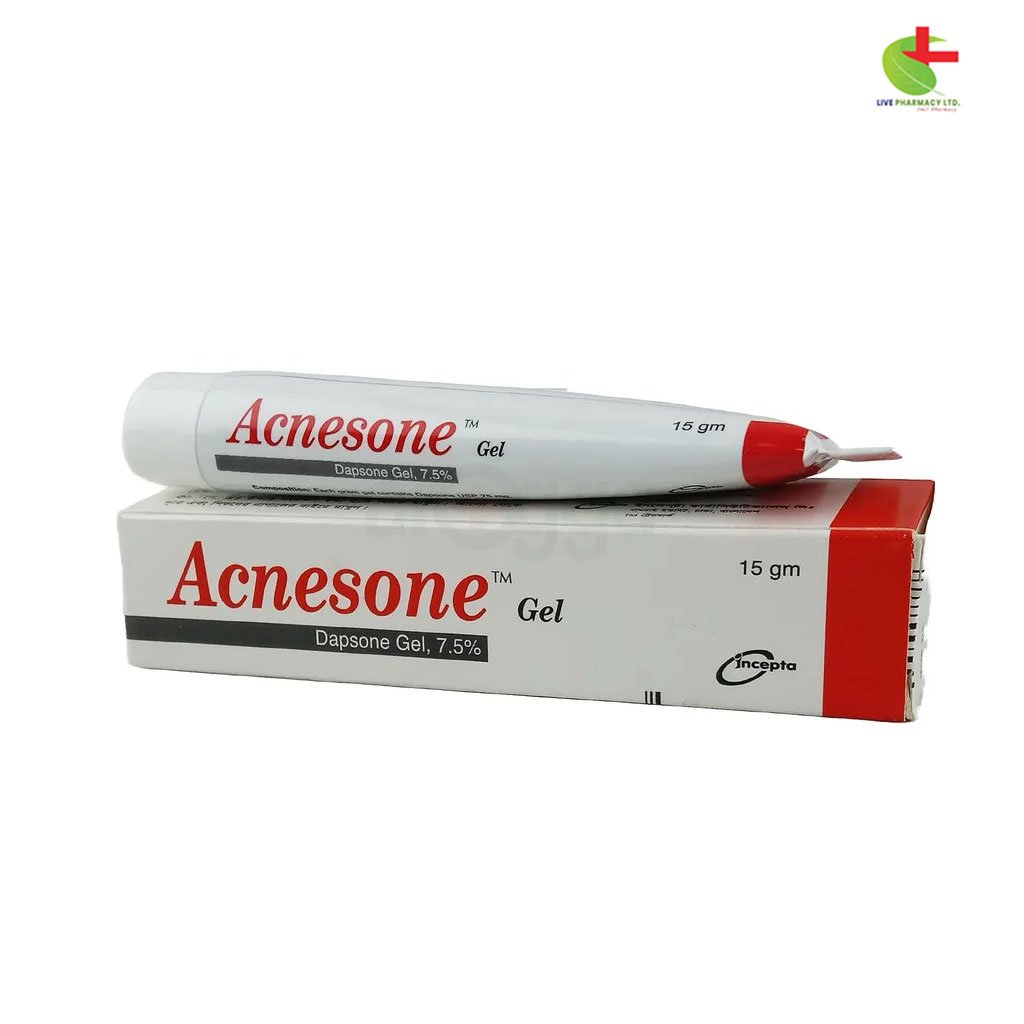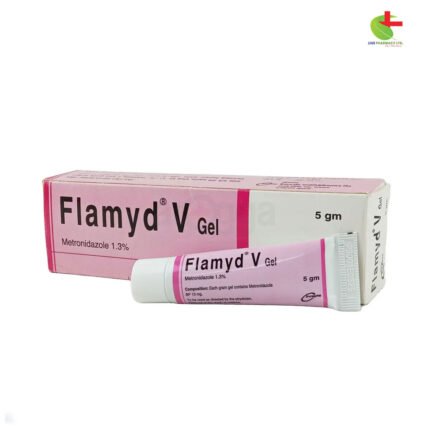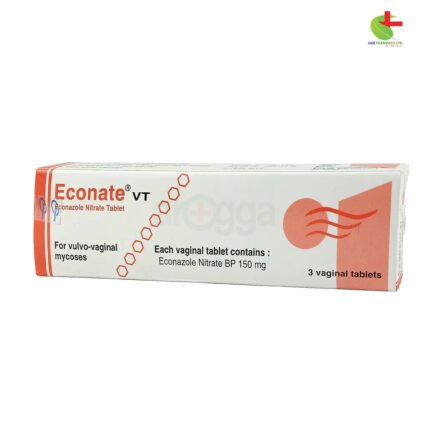Acnesone
150.00৳ Tube (15gm)
- Acnesone is a topical gel indicated for the treatment of acne vulgaris in patients aged 12 and older.
- It contains Dapsone, known for its anti-inflammatory and antimicrobial properties, effectively targeting acne-causing bacteria.
- Recommended application includes once daily for the 7.5% gel and twice daily for the 5% gel, ensuring the skin is clean and dry.
- Users should consult a healthcare professional for guidance and monitor for potential side effects, including dryness and irritation.
 Brand
Brand
|
Incepta Pharmaceuticals Ltd |
|---|---|
 Generics
Generics
|
Dapsone |
 Type
Type
|
Gel |
Indications
Acnesone is prescribed for the topical management of acne vulgaris in individuals aged 12 years and older.
Always use this medication as directed by a registered healthcare professional.
Pharmacology
Dapsone exhibits both anti-inflammatory and antimicrobial properties, contributing to its effectiveness in treating acne. The anti-inflammatory effects are achieved through the inhibition of neutrophil myeloperoxidase and eosinophil peroxidase activity, reduction of hypochlorous acid production, scavenging of reactive oxygen species, and suppression of neutrophil activity and chemoattractant-induced signal transduction. Its antimicrobial action, akin to that of sulfones and sulfonamides, operates by blocking bacterial dihydropteroate synthase within the folic acid metabolic pathway, effectively targeting microorganisms that synthesize their own folic acid. In vitro susceptibility tests reveal that Dapsone has demonstrated activity against Propionibacterium species, particularly Propionibacterium acnes (P. acnes).
Dosage & Administration
- Apply the 7.5% gel once daily, or the 5% gel twice daily, after gently washing and patting the skin dry.
- Dispense approximately a pea-sized amount of gel and apply a thin layer to the affected areas.
- Gently rub the gel in until fully absorbed.
- If there is no visible improvement after 12 weeks, reevaluate the treatment plan with your healthcare provider.
- Note that Dapsone gel may have a gritty texture with visible drug particles.
- Remember to wash your hands thoroughly after application.
Always follow the guidance of a registered healthcare professional regarding medication use.
Interactions
Co-administration with trimethoprim/sulfamethoxazole (TMP/SMX) may elevate the systemic levels of Acnesone and its metabolites. Additionally, using topical benzoyl peroxide alongside Acnesone can lead to temporary yellow or orange discoloration of the skin.
Contraindications
Acnesone is contraindicated for individuals with hypersensitivity to Dapsone.
Side Effects
Possible side effects include oiliness, peeling, dryness, and erythema at the application site.
Pregnancy & Lactation
Dapsone falls under Pregnancy Category C, with insufficient well-controlled studies in pregnant women. Animal studies have shown embryocidal effects in rats and rabbits, likely due to maternal toxicity. Use Dapsone Gel during pregnancy only if the potential benefits outweigh the risks to the fetus. Although systemic absorption following topical application is minimal compared to oral Dapsone, it is known to be excreted in human breast milk. Consider whether to discontinue nursing or the use of Dapsone Gel, based on the mother’s needs.
Precautions & Warnings
Methemoglobinemia: Cases of methemoglobinemia have been reported; discontinue Acnesone Gel if any symptoms arise.
Hematologic Effects: Individuals with Glucose-6-Phosphate Dehydrogenase (G6PD) deficiency may experience laboratory changes indicative of hemolysis when using Acnesone Gel.
Use in Special Populations
- Pediatric Use: The safety and effectiveness of Acnesone have not been established in children under 12 years of age.
- Geriatric Use: Clinical studies did not include enough participants aged 65 and older to determine potential differences in response compared to younger patients.
Therapeutic Class
Acne treatment preparations.
Storage Conditions
Store Acnesone at or below 30°C, away from light and moisture. Keep out of reach of children.













Reviews
There are no reviews yet.